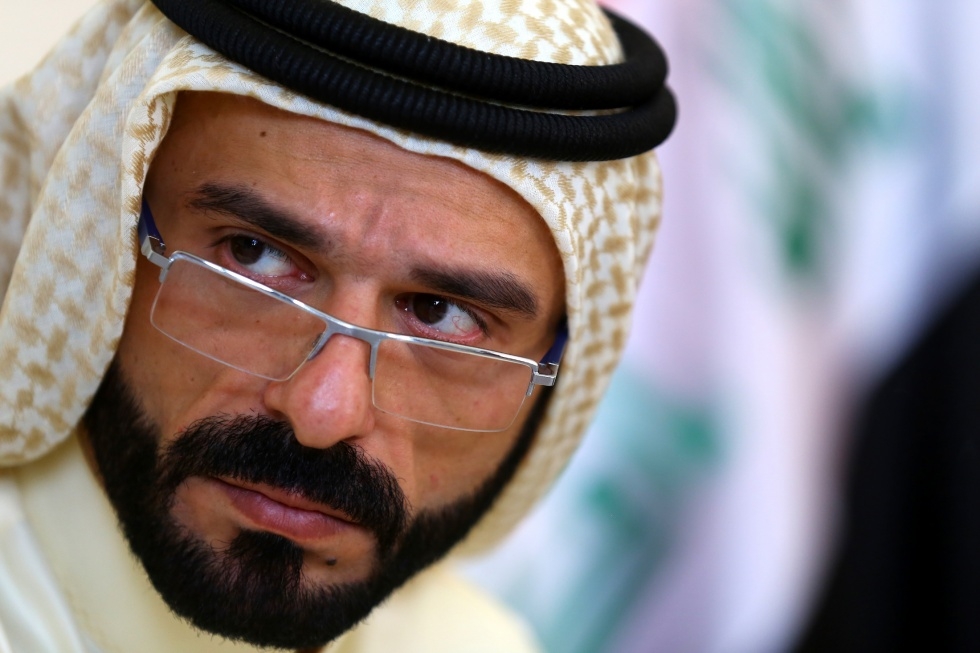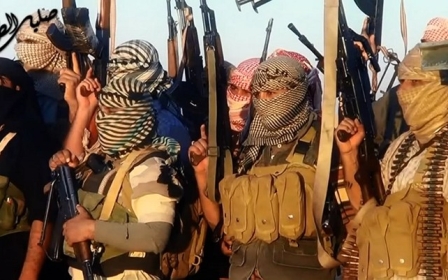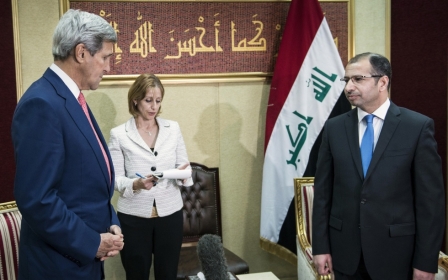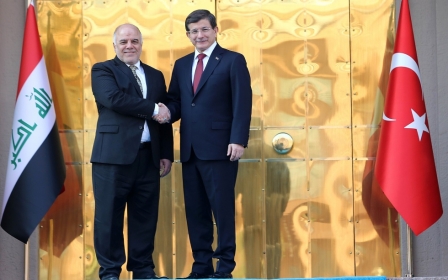Prospects for a Sunni-Iranian alliance in Iraq

Arab Sunni tribal leaders in Iraq have threatened to resort to Iranian help against the Islamic State (IS) if American assistance is not forthcoming. "We have already opened many channels with Iran and they have offered unconditional support, including weapons, funds and even fighters if required," a senior Iraqi lawmaker told Al-Jazeera.
Given that these tribes have been steadfast in opposing Tehran's involvement in their country, this scenario - which would have been previously unthinkable - is potentially a game-changer with major repercussions, not just for Iraq but for the region.
The threat was made during a meeting with US Senator, John McCain in Baghdad. It can be interpreted as a measure of Iraqi Sunni desperation that they would turn to Iran to fight off IS, which has been ferocious against Sunni tribes that have risen up against it.
Those who think such an alliance unlikely need only look at how these tribes went from fiercely resisting the US occupation to working with American troops against al-Qaeda's oppression of their community.
It can also be viewed as a sign of the extent of Sunni anger toward Washington, which is accused of double standards by abandoning them while helping Kurdish and Iraqi government forces against IS.
Alternatively, the threat could be seen as a cunning strategy of ensuring Sunni demands are met by playing off two antagonistic power-brokers, thereby regaining at least some of the influence and status they lost as a community after the American invasion. Both the US and Iran recognise that just as Sunni tribes were pivotal in defeating al-Qaeda in Iraq years earlier, so too will they be vital to the long-term demise of IS.
Tribal leaders are reportedly demanding US ground troops, weapons and money. Threatening to turn to Washington's primary regional rival means the US is far more likely to at least meet enough of the demands to stop this scenario from taking place.
Otherwise, Tehran could be handed a major strategic and propaganda victory (Washington is still struggling to come to terms with its invasion of Iraq greatly enhancing Iranian influence in the country and the wider region).
However, there is only so much the Obama administration can do. American influence in Iraq is not what it used to be, certainly relative to that of Iran, which may do all it can to limit Washington's room for manoeuvre, given the prospect of Sunni tribes turning their backs on the US.
As such, it is questionable whether Washington could successfully carry out Sunni demands to pressure a reluctant and weak Iraqi government to arm and support them against IS, and to keep Kurdish forces and Shiite militias away from their areas.
Also, a Democratic president has to deal with an antagonistic, Republican-majority Congress, as well as a public that is deeply wary of the costs, risks and prior experience of further military engagement in Iraq, particularly with regard to sending ground troops.
Risks and challenges
Sunni tribes and Iran also face risks and challenges. The tribes were already divided about whether to resist IS, out of fear, or suspicion of Baghdad, which has failed to adequately address festering Sunni grievances (which contributed to the rapid expansion of IS).
Resorting to help from Iran - which is propping up the Iraqi government and leading Shiite militias, both of which have committed atrocities against Sunnis - is likely to create further disagreements between and among tribes.
IS may take advantage of these divisions, and encourage recruitment among people with sectarian, anti-Shiite sentiments. Turning to Tehran will also anger the Arab Gulf monarchies, which have traditionally supported Iraq's Sunnis and are deeply suspicious of Iran's regional ambitions.
It is also highly unlikely, despite claims to the contrary, that Iranian supplies of arms, money and fighters will come with no strings attached. As the saying goes, “there is no such thing as a free lunch.” The question is when these strings will appear, and whether they will be palatable to the Sunni tribes.
Furthermore, there is no guarantee that Tehran will put the kind of pressure on Baghdad - one of its principal regional allies - that Iraqi Sunnis have been demanding of the US in terms of greater military support, and more broadly, economic opportunity and political representation. The latter two are Iraqi Sunnis' ultimate goals, of which challenging IS is a part, rather than an end in itself.
By reaching out to Sunni tribes, Tehran risks alienating Baghdad and Shiite militias, with whom the tribes have had long-running tensions. There may also be dissenting voices within Iran's leadership who fear arming fighters who might in the future turn against its own troops or those of its allies.
Tehran has existing, considerable military and financial commitments in Iraq, Syria, Lebanon and elsewhere in the region. Deepening its involvement in Iraq by supplying and funding Sunni tribes will put further strain on an economy already crippled by Western sanctions and plummeting oil prices.
A potential alliance between these tribes and Iran could rearrange the entire Iraqi chess board. One of the biggest challenges, whose consequences are difficult to accurately foretell, is the delicate and strained relationship between and among all the various players, even those that are on the same side.
This makes this latest development particularly intriguing. Only time will tell whether it comes to fruition, and if it does, whether it ultimately contributes to Iraqi cohesion or complicates things further.
- Sharif Nashashibi is an award-winning journalist and analyst on Arab affairs. He is a regular contributor to Al Arabiya News, Al Jazeera English, The National, and The Middle East magazine. In 2008, he received an award from the International Media Council "for both facilitating and producing consistently balanced reporting" on the Middle East.
The views expressed in this article belong to the author and do not necessarily reflect the editorial policy of Middle East Eye.
Photo: Sheikh Ali Hatem al-Suleiman al-Dulaimi, prince of the Dulaim tribe, one of the largest Sunni Arab tribes, and prominent leader of the Sunni Awakening Councils, speaks during a press conference in Erbil (AFP)
Middle East Eye propose une couverture et une analyse indépendantes et incomparables du Moyen-Orient, de l’Afrique du Nord et d’autres régions du monde. Pour en savoir plus sur la reprise de ce contenu et les frais qui s’appliquent, veuillez remplir ce formulaire [en anglais]. Pour en savoir plus sur MEE, cliquez ici [en anglais].





